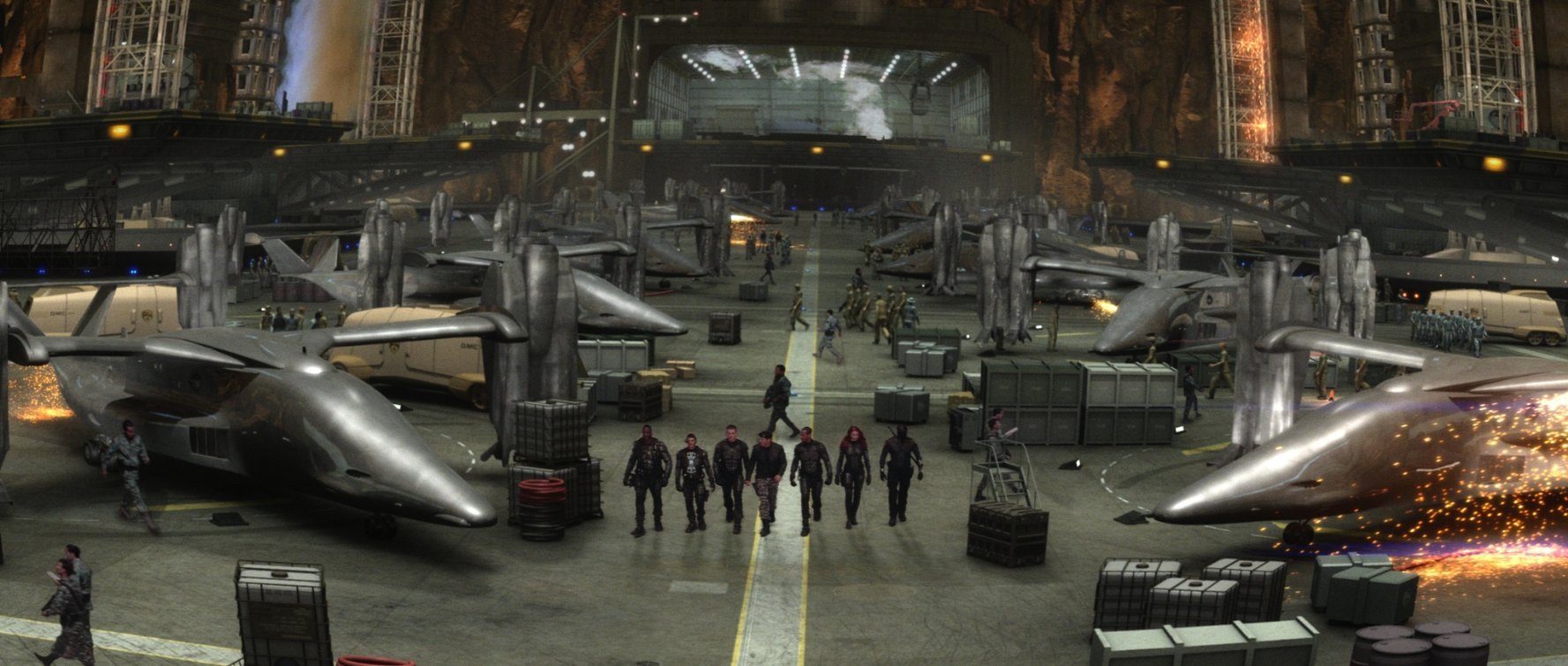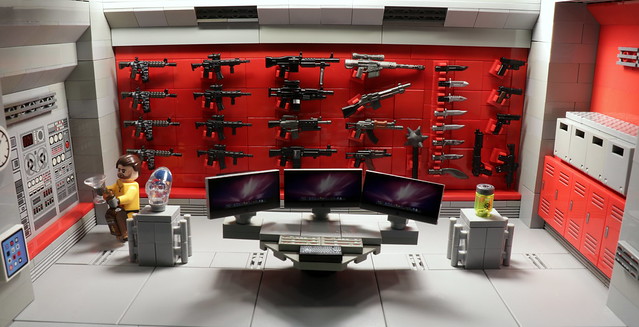- Joined
- Jan 17, 2010
- Messages
- 4,626
- Reaction score
- 5,621
For the first time, government military spending increased in all five geographical regions, Sipri thinktank finds

Global military expenditure has reached a record high of $2440bn (£1970bn) after the largest annual rise in government spending on arms in over a decade, according to a report.
The 6.8% increase between 2022 and 2023 was the steepest since 2009, pushing spending to the highest recorded by the Stockholm International Peace Research Institute (Sipri) in its 60-year history.
For the first time, analysts at the thinktank recorded a rise in military outlay in all five geographical regions: Africa, Europe, the Middle East, Asia and Oceania and the Americas.
Nan Tian, a senior researcher with Sipri’s military expenditure and arms production programme, warned of the heightened risk of an unintended conflagration as governments raced to arm. He said: “The unprecedented rise in military spending is a direct response to the global deterioration in peace and security.

“States are prioritising military strength, but they risk an action-reaction spiral in the increasingly volatile geopolitical and security landscape.”
The two largest spenders – the United States (37%) and China (12%) – made up around half of global military spending, increasing their expenditure by 2.3% and 6% respectively.
The US government spent 9.4% more on “research, development, test and evaluation” than in 2022 as Washington sought to stay at the forefront of technological developments.
Since 2014, when Russia first invaded Crimea and the eastern Donbas region of Ukraine, the US has been shifting its focus from counter-insurgency operations and asymmetric warfare to “developing new weapon systems that could be used in a potential conflict with adversaries with advanced military capabilities”, according to Sipri’s report.

While dwarfed by the US in military spending, China, as the world’s second biggest spender, allocated an estimated $296bn in 2023, an increase of 6% on 2022. It has consistently increased defence spending over the past 29 years, although the biggest growth periods were in the 1990s and between 2003 and 2014.
The single-digit growth figure of the last year reflected China’s more modest economic performance in recent times, according to Sipri.
Russia, India, Saudi Arabia and the UK – the largest spender in central and western Europe after a 7.9% year-on-year increase – follow in Sipri’s league table.
The Kremlin’s military expenditure in 2023, after a year of full-scale war with Ukraine, was 24% higher than in 2022 and 57% more than in 2014, when Russia invaded Crimea. With spending at 5.9% of GDP, equivalent to 16% of the Russian government’s total expenditure, 2023 marked the highest levels recorded since the dissolution of the Soviet Union.
Amid growing tensions with China and Pakistan, Indian spending was up by 4.2% from 2022 and by 44% from 2014, reflecting an increase in personnel and operational costs.

Sipri’s analysts noted that 75% of India’s capital outlay was on domestically produced equipment, the highest ever ratio, as India progressed towards its goal of becoming self-reliant in arms development and production.
Saudi Arabia’s 4.3% rise in spending, to an estimated $75.8bn, or 7.1% of GDP, was said to have been powered by the increased demand for non-Russian oil and rising oil prices after Russia’s invasion of Ukraine.
Expenditure in the Middle East rose by 9% to an estimated $200bn, making it the region with the highest military spend as a proportion of GDP in the world at 4.2%, followed by Europe (2.8%), Africa (1.9%), Asia and Oceania (1.7%) and the Americas (1.2%).
The military expenditure of Israel, second behind Saudi Arabia in the region but ahead of Turkey, grew by 24% to reach $27.5bn, driven mainly by its offensive in Gaza.
Iran was the fourth largest military spender in the Middle East. Its spending went up marginally (+0.6%) to $10.3bn. Sipri said the share of total military spending allocated to the Islamic Revolutionary Guard Corps had been increasing since at least 2019.

Ukraine became the world’s eighth biggest military spender in 2023, with an annual rise of 51% to reach $64.8bn, still only equivalent to 59% of Russia’s military spending that year.
Kyiv’s military expenditure increased by 1,270% between 2014 and 2023. The military aid received from over 30 countries is included in Sipri’s figures.
The largest percentage increase in military spending by any country in 2023 was by the government of the Democratic Republic of the Congo (+105%), which has been in a protracted conflict with non-state armed groups, mostly in the east of the country. South Sudan recorded the second largest percentage increase (+78%) amid internal violence.
The use of the military to combat organised gangs was said to be a factor in the rise in spending in Central America and the Caribbean, where expenditure was 54% higher in 2023 than in 2014.
Spending by the Dominican Republic rose by 14% in response to worsening gang violence in neighbouring Haiti.
Expenditure reached $11.8bn in Mexico, a 55% increase from 2014, albeit marginally down on 2022. Allocations to the Guardia Nacional (National Guard) – a militarised force used to curb criminal activity – rose from 0.7% of Mexico’s total military expenditure in 2019, when the force was created, to 11% last year.

Diego Lopes da Silva, a senior researcher at Sipri, said: “The use of the military to suppress gang violence has been a growing trend in the region for years as governments are either unable to address the problem using conventional means or prefer immediate – often more violent – responses.”
https://www.theguardian.com/world/2024/apr/22/global-defence-budget-jumps-to-record-high-of-2440bn

Global military expenditure has reached a record high of $2440bn (£1970bn) after the largest annual rise in government spending on arms in over a decade, according to a report.
The 6.8% increase between 2022 and 2023 was the steepest since 2009, pushing spending to the highest recorded by the Stockholm International Peace Research Institute (Sipri) in its 60-year history.
For the first time, analysts at the thinktank recorded a rise in military outlay in all five geographical regions: Africa, Europe, the Middle East, Asia and Oceania and the Americas.
Nan Tian, a senior researcher with Sipri’s military expenditure and arms production programme, warned of the heightened risk of an unintended conflagration as governments raced to arm. He said: “The unprecedented rise in military spending is a direct response to the global deterioration in peace and security.

“States are prioritising military strength, but they risk an action-reaction spiral in the increasingly volatile geopolitical and security landscape.”
The two largest spenders – the United States (37%) and China (12%) – made up around half of global military spending, increasing their expenditure by 2.3% and 6% respectively.
The US government spent 9.4% more on “research, development, test and evaluation” than in 2022 as Washington sought to stay at the forefront of technological developments.
Since 2014, when Russia first invaded Crimea and the eastern Donbas region of Ukraine, the US has been shifting its focus from counter-insurgency operations and asymmetric warfare to “developing new weapon systems that could be used in a potential conflict with adversaries with advanced military capabilities”, according to Sipri’s report.
While dwarfed by the US in military spending, China, as the world’s second biggest spender, allocated an estimated $296bn in 2023, an increase of 6% on 2022. It has consistently increased defence spending over the past 29 years, although the biggest growth periods were in the 1990s and between 2003 and 2014.
The single-digit growth figure of the last year reflected China’s more modest economic performance in recent times, according to Sipri.
Russia, India, Saudi Arabia and the UK – the largest spender in central and western Europe after a 7.9% year-on-year increase – follow in Sipri’s league table.
The Kremlin’s military expenditure in 2023, after a year of full-scale war with Ukraine, was 24% higher than in 2022 and 57% more than in 2014, when Russia invaded Crimea. With spending at 5.9% of GDP, equivalent to 16% of the Russian government’s total expenditure, 2023 marked the highest levels recorded since the dissolution of the Soviet Union.
Amid growing tensions with China and Pakistan, Indian spending was up by 4.2% from 2022 and by 44% from 2014, reflecting an increase in personnel and operational costs.

Sipri’s analysts noted that 75% of India’s capital outlay was on domestically produced equipment, the highest ever ratio, as India progressed towards its goal of becoming self-reliant in arms development and production.
Saudi Arabia’s 4.3% rise in spending, to an estimated $75.8bn, or 7.1% of GDP, was said to have been powered by the increased demand for non-Russian oil and rising oil prices after Russia’s invasion of Ukraine.
Expenditure in the Middle East rose by 9% to an estimated $200bn, making it the region with the highest military spend as a proportion of GDP in the world at 4.2%, followed by Europe (2.8%), Africa (1.9%), Asia and Oceania (1.7%) and the Americas (1.2%).
The military expenditure of Israel, second behind Saudi Arabia in the region but ahead of Turkey, grew by 24% to reach $27.5bn, driven mainly by its offensive in Gaza.
Iran was the fourth largest military spender in the Middle East. Its spending went up marginally (+0.6%) to $10.3bn. Sipri said the share of total military spending allocated to the Islamic Revolutionary Guard Corps had been increasing since at least 2019.

Ukraine became the world’s eighth biggest military spender in 2023, with an annual rise of 51% to reach $64.8bn, still only equivalent to 59% of Russia’s military spending that year.
Kyiv’s military expenditure increased by 1,270% between 2014 and 2023. The military aid received from over 30 countries is included in Sipri’s figures.
The largest percentage increase in military spending by any country in 2023 was by the government of the Democratic Republic of the Congo (+105%), which has been in a protracted conflict with non-state armed groups, mostly in the east of the country. South Sudan recorded the second largest percentage increase (+78%) amid internal violence.
The use of the military to combat organised gangs was said to be a factor in the rise in spending in Central America and the Caribbean, where expenditure was 54% higher in 2023 than in 2014.
Spending by the Dominican Republic rose by 14% in response to worsening gang violence in neighbouring Haiti.
Expenditure reached $11.8bn in Mexico, a 55% increase from 2014, albeit marginally down on 2022. Allocations to the Guardia Nacional (National Guard) – a militarised force used to curb criminal activity – rose from 0.7% of Mexico’s total military expenditure in 2019, when the force was created, to 11% last year.

Diego Lopes da Silva, a senior researcher at Sipri, said: “The use of the military to suppress gang violence has been a growing trend in the region for years as governments are either unable to address the problem using conventional means or prefer immediate – often more violent – responses.”
https://www.theguardian.com/world/2024/apr/22/global-defence-budget-jumps-to-record-high-of-2440bn






